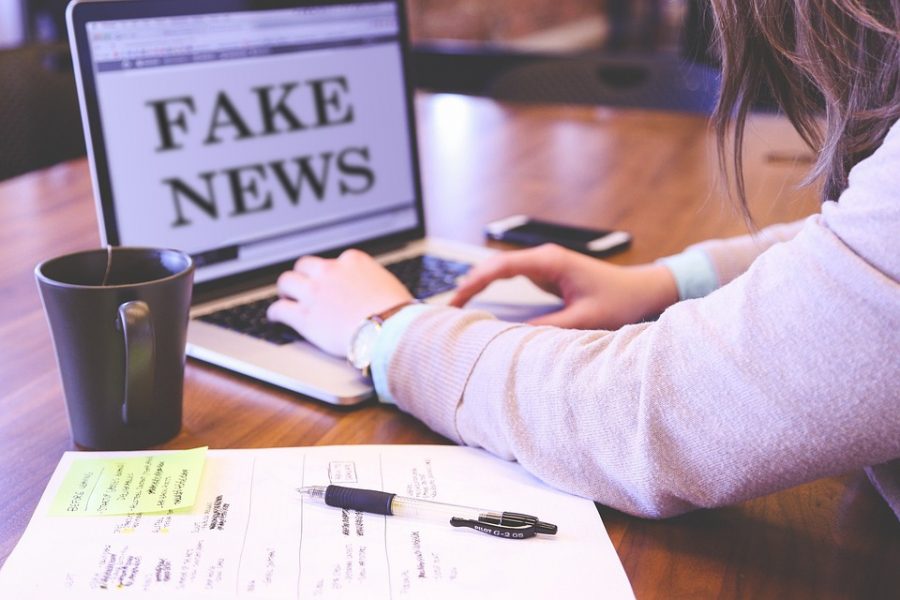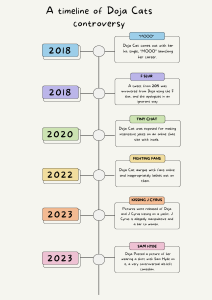The Spread of Fake News on Facebook
April 2, 2020
Most people think of Facebook as a place to connect with friends and family, but there are many people who use the platform to spread misinformation and fake news. Social media has come under fire in recent years for not fact-checking ads ran on the platforms, and while some sites have created regulations to make it more difficult to run false ads, Facebook is still adamant about not fact-checking the information.
False information ran rampant during the 2016 Presidential election and is attributed to Russia and Facebook’s influence. “One of the big stories of the 2016 Presidential campaign was the role Facebook played in spreading false and misleading information, from Russia and from inside the United States, about candidates,” says The New Yorker. Many credit the campaign outcome to Facebook’s spread of false information and people trusting Facebook to fact check the information on their platform: people trust the information and believe it to be true.
Although Facebook has received backlash for their involvement in spreading fake news, they’ve done nothing drastic to prohibit the continued spread of misinformation as seen in the statement by The New Yorker: “Mark Zuckerberg, Facebook’s co-founder and chief executive, announced this fall that Facebook will not fact-check political advertisements or other statements made by politicians on the platform.” What makes the situation worse for consumers is the fact that Facebook and other data collectors sell your search history so they can advertise products that they think you’ll buy.
Although the selling of data can be used for economic gain and can make it easier on the buyer and seller, those seeking to spread false information can easily buy your data and advertise to you something specific so that you may be inclined to believe fake news, creating “a social media environment that is inherently prone to fake news epidemics,” according to The Chicago Tribune. “When marketers use information on surfing habits, opinions and social connections to aim ads at people with just the right interests, this can facilitate beneficial economic exchange. But in the wrong hands, the technology becomes a means for the precision seeding of propaganda.”
Senior Regan Gargac has had some unfortunate run-ins with fake news. She says: “[A post on Facebook] said global warming isn’t real…It was mostly from family members, which was really disappointing. They were talking about all these politicians are being headed by somebody in the shadows and they’re just puppet politicians, it was just really weird. It was just huge conspiracy theories.”
Although fake news is continuing to spread on Facebook, there are some algorithms that have been created by Facebook to help contain the spread of fake news. “We are committed to reducing the spread of false news on Facebook,” says Facebook’s help page. “We remove fake accounts and disrupt economic incentives for people that share misinformation. We also use signals, like feedback from our community, to identify stories that may be false. In countries where we work with independent third-party fact-checkers, stories rated as false by those fact-checkers are shown lower in News Feed. If Pages or domains repeatedly create or share misinformation, we significantly reduce their distribution and remove their advertising rights.”
More often than not these efforts by Facebook are not enough, as many are still experiencing the effects of fake news. When asked if Facebook should do more to stop the spread of fake news Gargac said: “Oh one hundred percent.”
As more and more fake news is perpetuated by Fakebook the truth becomes more clouded, but what you personally do with the information spread on social media is still up to the individual to decide what to believe. “We’re also working to empower people to decide for themselves what to read, trust and share by giving them more context on stories,” said Facebook’s help page.
Although the spread of Fake News by family members is disappointing, the ability to spread Fake News yourself, as Senior Mathew Dickman explains, is just as disappointing: “So I saw on my Facebook profile it says that I am widowed. This is blatant fake news, as the closest thing I’ve had to a relationship was 12 days, so how could I be widowed? I think Facebook should make sure 17-year-olds can’t turn their status to widowed.”
Moreover, people who use social media such as Facebook need to take what they see with a grain of salt. As Dickman explains, “People should make sure they don’t believe everything they see on Facebook. If they do this then they’ll just assume I’m widowed, and I can assure you I am not.”
When it comes to spotting fake news, though, The Harvard Summer School says there are four main ways to spot Fake News: “1. Vet the publisher’s credibility…2. Pay attention to quality and timelines…3. Check the sources and credentials…4. Ask the pros.”









